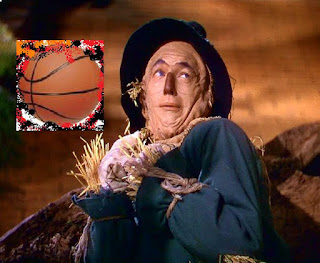This has become old hat in high school biology classes, but it still blows my mind, as it should.
We are all God now. You may laugh, and I can temper this with some off-hand remark, but we're not the same critters we were before we started transforming lifeforms. That we do this with indifference makes it seem surreal.
(I wanted to jump up and down and scream in delight and fear--"Look what we've done!!!!" And, OK, maybe I did, just a little bit....)
***
A few planets are lining up this week, and a few folks are excited. So excited that you can go online and see them.
That planets are visible naked eye is pretty cool, and that they wander against the background of stars even neater. Indeed, that's where the word "planet" comes from--planasthai, "to wander."
To stare at one naked eye, though, is not particularly exciting. They flicker less than stars, and are quite bright, but, well, um--they look like stars.
We have made looking at planets a check list event, a commodity, an "event" simply because it's an event.
A lot of folks cannot fathom anymore why that bothers me, so I guess that puts me in the crank category. A lot of folks cannot fathom what they even want.
Maybe the point of education is to learn what you want, to figure out what's worth seeking. I'm pretty sure it's not to pass a standardized test.
***
I can change the way light is reflected off bacteria, light meant only for a few other humans to see, to reflect our glory of ourselves as we play God.
Some comb jellies flash an electric blue when disturbed, presumably to distract predators. This makes sense, a logical reason to expend energy, fit for our mechanistic view of the world.
Yet when I squat by a dying critter, the rhythm of the wash of waves running through my ears, the salty smell of the dying in my nostrils, the soft forgiving warm and wet sand caressing my feet, this single jelly flashing its last three, brief pulses of light on the edge of the bay matters to me, and I do not know why.
I only saw it because I happened to be there--and it would have mattered even if I had not seen it.
I have no opinion on the existence of God--my people said He is unknowable, and I, to their chagrin, took them at their word. I do not truck with what I cannot know.
But I do know this--we cannot know (and can never know) what we pretend to know today. Hubris does not require the existence of gods.
Tomorrow I will be the destroyer of earths as I kill the same bacterial cultures we worked hard to create. I will pretend this does not bother me.
***
As for the planets, if you think it's worth staring at them online, I have a few other parlor tricks that may interest you.
Cristoforo Colombo used a similar parlor trick to fool the locals of what is now known as Jamaica. The locals had supported Colombo and his crew, but were (understandably) a little annoyed at the murderous actions of some of his crew. Colombo knew of an impending lunar eclipse predicted by Regiomontanus many years before. He attributed the eclipse to the Christian God, the same God Europe used to justify slaughtering those who knew my bay before me.
Stories matter.
Still, a lunar eclipse is about as exciting as the planets lined up in late winter--a parlor show. That they exist (and that we figured out what those points of light mean) are the stories worth knowing.
So tomorrow, an hour or so after my bacteria break down their last molecules of sugar, I will wander outside Bloomfield High, take a look west, and see the string of planetary pearls that got so much attention this week.
Then I'll walk home, knowing I am among the luckiest men alive, feeling the earth below with every step that takes me home.
Hokey smokes! Fluorescent bacteria!!!!








































